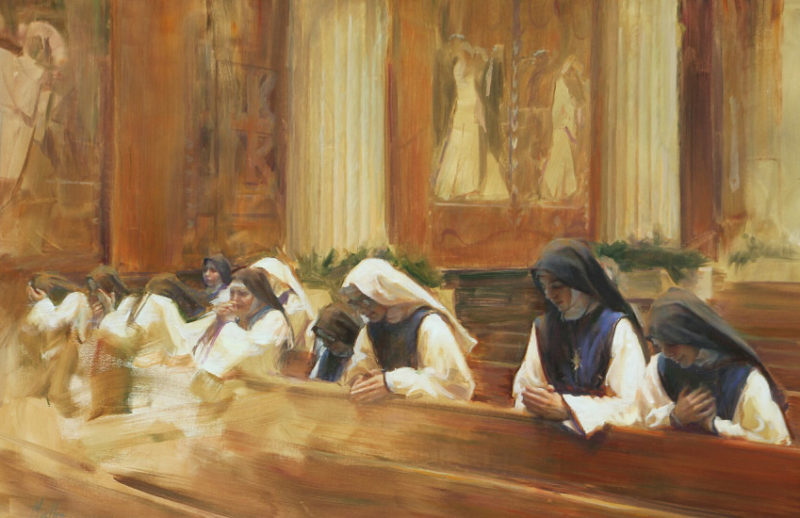Prayer.
“We ought always to pray.” — St. Luke 18.1.
TWENTY-FOURTH DAY.
The great work of our perfection is born, grows, and is consummated by the means of two exercises, which are simple but very precious. These exercises are frequent aspirations and the consideration of God. Aspirations are certain transports of the soul towards God. These transports are the more efficacious as they are vehement and loving. The considerations of God are the more beneficial as the regards towards God are more simple One cannot imagine the power of these two exercises to assist us in our duties, to sustain us in temptation, to raise us after our falls, and to unite us intimately with God. One can easily make them in any time or place. These exercises should be as familiar to us as it is easy for us to breathe. — St. Francis of Sales.
Every time that St. Ignatius heard the clock strike he recollected himself and elevated his heart to God.
St. Vincent de Paul was exact to observe the same practice. When in company with others, he made the sign of the cross and some interior aspiration. When alone he said usually: “O my God! O Divine Goodness! When wilt Thou give us grace to belong entirely to Thee?”
St. Thomas Aquinas often made ejaculatory prayers at table, at study, when he left his room, upon his return, when going from one exercise to another.
Cassian relates that the monks of Egypt frequently used these words of the prophet: Deus, in adjutorium meum intende. Domine ad adjuvandum me festina. “Incline unto my aid, O Lord. O Lord, make haste to help me.” The anchorites of eminent virtue, being assembled to deliberate which was the best of all the practices of piety, decided upon this: to pronounce these words often and with much humility, together with a great desire to be heard.
The venerable Palafox said frequently every day: “Lord, keep me so that I may keep Thee and never be separated from Thee. I desire but Thee — Thou Who art my God and my all.”
The guardian of the hospital to which the servant of God St. Joseph Labre had retired before his death, relates that he repeated frequently and many times in the night with great devotion: “Lord, have pity on me. O my God, take pity on me.”
Prayer.
O my God, how can my heart desist from saying, “I love Thee,” as often as I breathe? Let my heart, so ungrateful, become grateful. Let this heart, all ice, be consumed with love for Thee.




